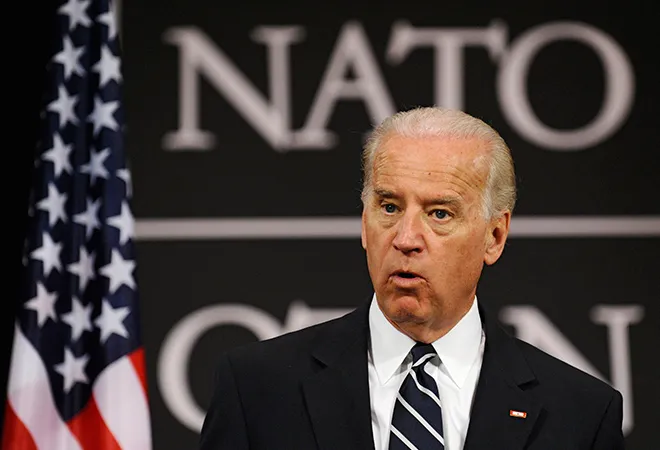
In his bid for the US presidency, former Vice President Joe Biden deemed Donald Trump to have “surrendered our position in the world.” Now, with Biden slated to become the 46th president of the United States, his approach to the transatlantic partnership would be at the core of his promise to “once more place America at the head of the table.” However, the mere departure of Eurosceptic Trump won’t reinvigorate the partnership, as hurdles would be apparent owing either to longstanding issues and nascent divergences of the Trump years, or questions over Biden possibly repeating some missteps of the Barack Obama years.
On trade, although Biden would abandon Trump’s declaration of Europe being an American “foe,” tensions over longstanding disputes (like that over subsidies for Airbus and Boeing) are likely to persist. This is not to mention possible aggravation at the hands of nascent divergences, like Europe pushing for a digital tax on US tech giants. Similarly, on burden-sharing for collective security, Biden would probably dial-down the rhetoric on Europeans “free-riding” on US largesse. However, the push for NATO member-states to increase their defence spending to 2% of GDP would continue, as that target was set in 2014 during the Obama-Biden years.
On transatlantic divergences like that over Iran, which emerged entirely at the hands of Trump withdrawing from the Obama-era Iran Nuclear Deal, Biden’s reversal to a pre-Trump status-quo won’t be swift. A renewed transatlantic consensus on the matter could be impeded by Biden’s insistence on “follow-on negotiations” to expand the scope of the deal, or domestic constraints posed by Republicans possibly continuing to control the US Senate.
Finally, under Obama, questions over US credibility often riddled Europeans as Russian adventurism increased at NATO’s doorsteps, while Washington seemed to be “no more than peripherally involved in the struggle to restore stability to the region.” Hence, under Biden, Europe would keenly observe his appetite for a credible strategy of unified deterrence. Beyond security of the periphery, similar questions could also emerge over Biden’s commitment to continue to stand firm against China, just when a revived European “strategic autonomy” has informed Brussels’ recognition of China as a “systemic rival” and its contemplation of safeguards against predatory acquisitions by Chinese investors.
Hence, although the transatlantic relationship would be a priority for Biden, the pursuit of a mere restorationist agenda will hardly address the need to recalibrate the partnership’s raison d’être — to better tackle a range of divergences and continued questions over US credibility.
The views expressed above belong to the author(s). ORF research and analyses now available on Telegram! Click here to access our curated content — blogs, longforms and interviews.




 PREV
PREV


